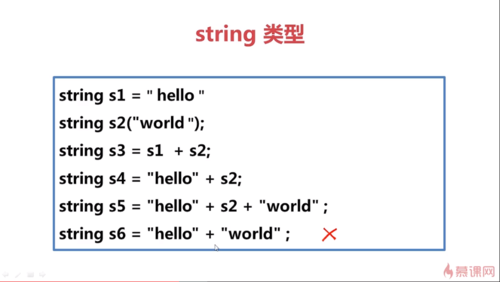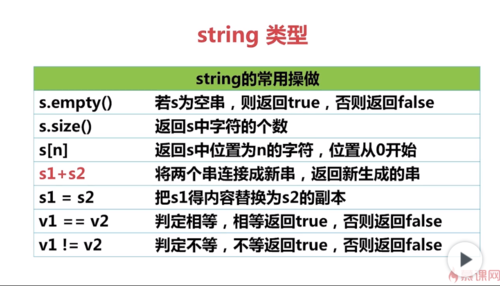-
好的回到家大家随机打劫吧嗒吧嗒回答不打你那查看全部
-
内存分区五个
查看全部 -
#include <iostream>
#include <string>
using namespace std;
/**
* 定义类:Student
* 数据成员:m_strName
* 数据成员的封装函数:setName()、getName()
*/
class Student
{
public:
// 定义数据成员封装函数setName()
void setName(string _name)
{
m_strName = _name;
}
// 定义数据成员封装函数getName()
string getName()
{
return m_strName;
}
//定义Student类私有数据成员m_strName
private:
string m_strName;
};
int main()
{
// 使用new关键字,实例化对象
Student *str = new Student;
// 设置对象的数据成员
str->setName("慕课网");
// 使用cout打印对象str的数据成员
// 将对象str的内存释放,并将其置空
cout<<str->getName()<<endl;
delete str;
str = NULL;
return 0;
}
查看全部 -
#include <iostream>
#include <string>
using namespace std;
/**
* 定义类:Student
* 数据成员:名字、年龄
*/
class Student
{
public:
// 定义数据成员名字 m_strName 和年龄 m_iAge
string m_strName;
int m_iAge;
};
int main()
{
// 实例化一个Student对象stu
Student stu;
// 设置对象的数据成员
stu.m_strName = "慕课网";
stu.m_iAge = 2;
// 通过cout打印stu对象的数据成员
cout << stu.m_strName << " " << stu.m_iAge << endl;
return 0;
}
查看全部 -
#include<Teacher.h>和#include"Teacher.h"区别
<>是在安装目录下查找,""是在本目录下查找,找不到再去安装目录查找。
查看全部 -
int main(void)
void表示无参数,可以省略。
C++标准就是int main(){}
查看全部 -
string操作方法:
 查看全部
查看全部 -
 string常用操作查看全部
string常用操作查看全部 -
命名规则:m_数据类型
查看全部 -
初始化string对象的方式
查看全部 -
aaaaaa
查看全部 -
。。。。。。。。。。。。
查看全部 -
析构函数定义
查看全部 -
构造函数总结2
查看全部
举报







